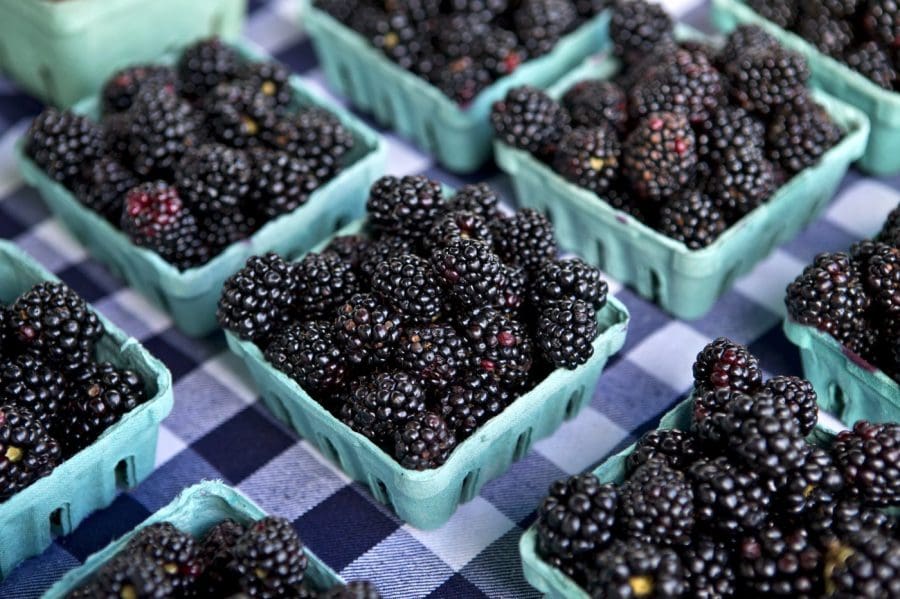Wellness That Matters: Black Health News & Community Care
(The Hill) — The Environmental Working Group (EWG) added blackberries and potatoes to its “Dirty Dozen” list of produce containing the most residue of potentially harmful pesticides.
Blackberries and potatoes landed in spots No. 10 and No. 12, respectively, on the updated list released Wednesday. They were added based on new data from the U.S. Department of Agriculture (USDA), which tested blackberries for the first time in 2023.
The USDA data found that 93 percent of blackberry samples had pesticide residues, with an average of four different pesticides per sample. More than half of blackberry samples contained residue of the pesticide cypermethrin, which the Environmental Protection Agency (EPA) classifies as a possible human carcinogen.
Potatoes landed on the list after the USDA released new data showing 90 percent of samples contained chlorpropham, a chemical banned in the European Union because of health concerns.
The legacy produce still topped the “Dirty Dozen” list.
Spinach ranked No. 1, with more pesticide residue by weight than any other type of produce, and strawberries followed at No. 2.
“Kale, Collard, and Mustard Greens” collectively placed No. 3 — and EWG noted that more than half of kale samples were “tainted” by a “possibly cancer-causing pesticide.”
The “Dirty Dozen” list ranked grapes as No. 4, peaches as No. 5, cherries as No. 6, nectarines as No. 7, pears as No. 8, apples as No. 9, blackberries as No. 10, blueberries as No. 11 and potatoes as No. 12.
The guide analyzed pesticide residue data from USDA tests of more than 53,000 samples of 47 fruits and vegetables, EWG said in a press release. The tests are conducted after the produce samples are washed, scrubbed or peeled, “as is typical for each type of produce.”
EWG said the pesticide residue remained on the produce, but washing fruits and vegetables “remains an important step to reduce pesticide levels, dirt, and possible bacterial contamination.”
EWG encourages consumers to buy organic produce if they want to avoid the “Dirty Dozen” produce items.
EWG also publishes a “Clean Fifteen” list of produce with overall lower levels of toxicity. Pineapples led that list this year, followed by sweet corn (fresh and frozen), avocados, papayas and onion as the top five produce items.
Nos. 6-15 included sweet peas (frozen), asparagus, cabbage, watermelon, cauliflower, bananas, mangoes, carrots, mushrooms, and kiwi.
EWG said nearly 60 percent of conventionally grown produce on the “Clean Fifteen” list had “no detectable pesticide residues,” while more than 9 in 10 samples of produce on the “Dirty Dozen” list contained residues of potentially harmful pesticides.
Read the full article on the original site


